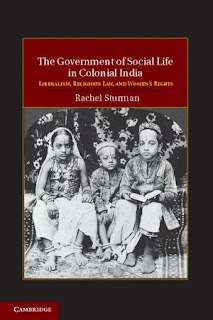 New from Stanford University Press: Racing for Innocence: Whiteness, Gender, and the Backlash Against Affirmative Action by Jennifer L. Pierce.
New from Stanford University Press: Racing for Innocence: Whiteness, Gender, and the Backlash Against Affirmative Action by Jennifer L. Pierce.About the book, from the publisher:
How is it that recipients of white privilege deny the role they play in reproducing racial inequality? Racing for Innocence addresses this question by examining the backlash against affirmative action in the late 1980s and early 1990s—just as courts, universities, and other institutions began to end affirmative action programs.
This book recounts the stories of elite legal professionals at a large corporation with a federally mandated affirmative action program, as well as the cultural narratives about race, gender, and power in the news media and Hollywood films. Though most white men denied accountability for any racism in the workplace, they recounted ways in which they resisted—whether wittingly or not— incorporating people of color or white women into their workplace lives. Drawing on three different approaches—ethnography, narrative analysis, and fiction—to conceptualize the complexities and ambiguities of race and gender in contemporary America, this book makes an innovative pedagogical tool.































